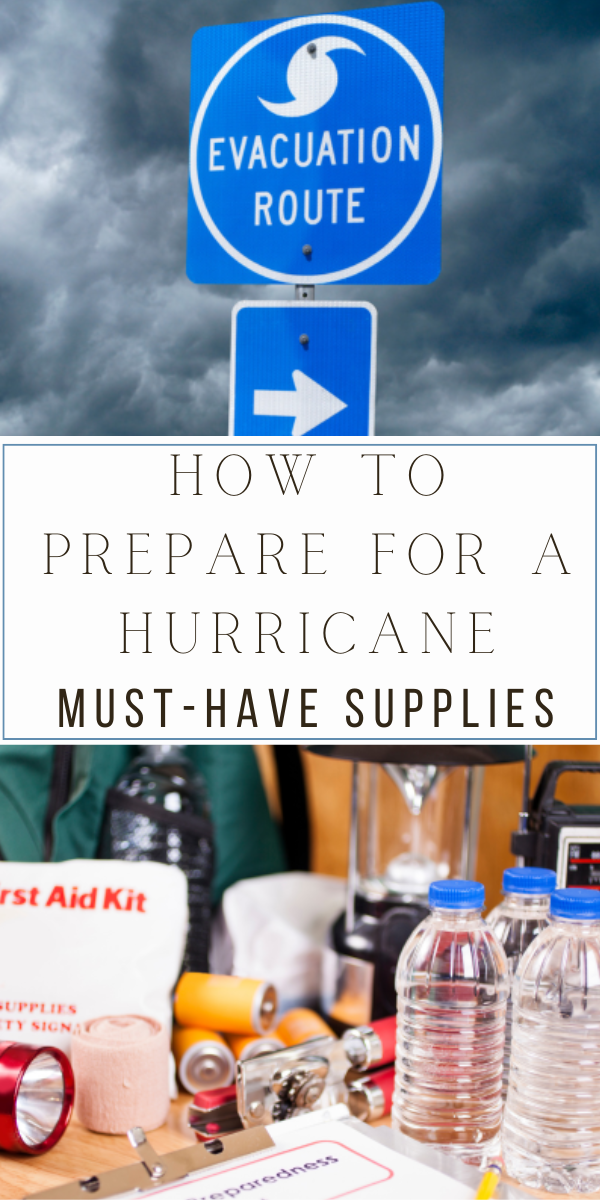When facing the threat of a hurricane, preparation is key. As a native Floridian who has experienced the fury of Hurricane Michael firsthand, I’ve learned that being ready can make a world of difference.
When learning how to prepare for a hurricane, early preparation is vital because last-minute shopping can leave you frustrated and empty-handed.
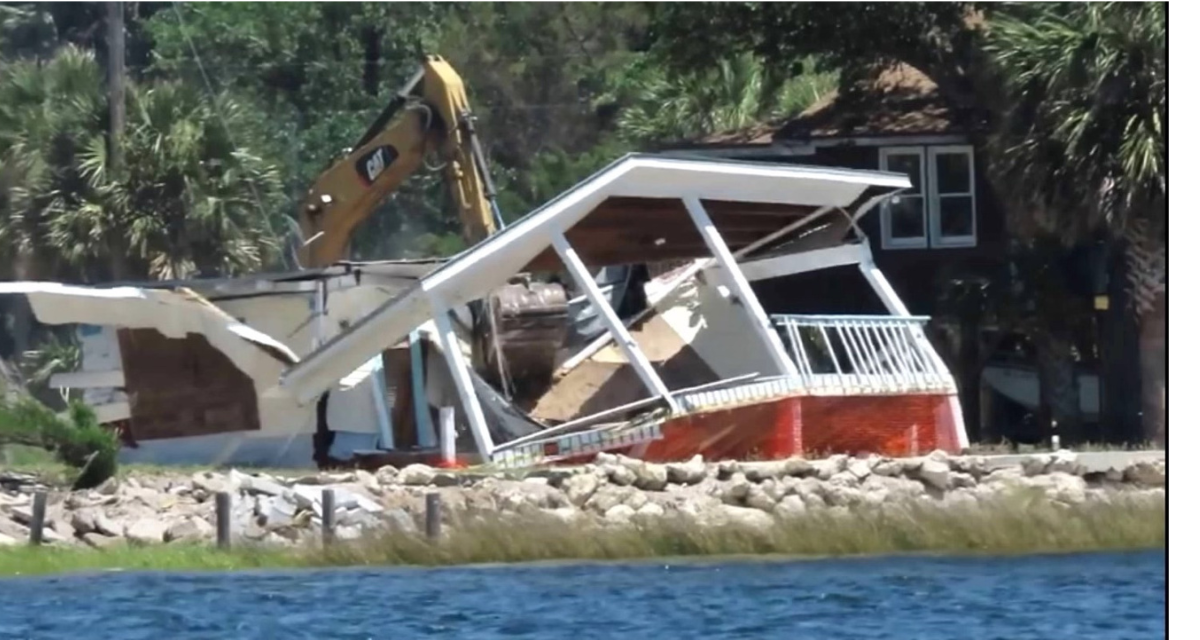
This is a picture of my sister's coastal house which was destroyed by the storm surge of Hurricane Michael. The Gulf hurricane season, June through November, continues to batter the southeast each year and it seems like each hurricane watch and hurricane warning comes faster each time.
I hope this post helps you prepare and stay safe if you're effected by a hurricane.
Note: Click any image to learn more or shop the item. Visit our Amazon shop for more hurricane-ready essentials—check it out here!
My first recommendation is always to evacuate if you’re in a mandatory evacuation zone. However, whether you're a home owner or a renter, if you decide to stay home, knowing how to prepare for a hurricane is crucial.
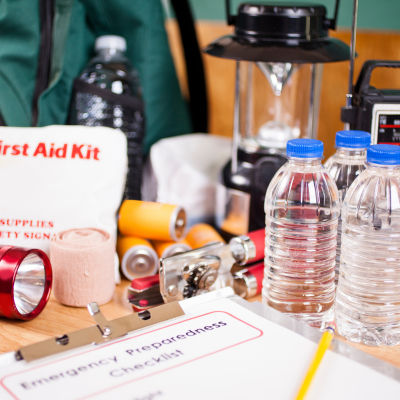
This list of must-have supplies will help you weather the storm. Many of these items can be stocked ahead of time, while others need to be purchased just before the hurricane hits.
Shopping List
Here are some items I recommend you stock up on before hurricane conditions occur:
- Batteries
- Battery-powered fans
- Bottled water
- Generator
- Non-perishable food – Stock up on canned goods, protein bars, and snacks.
- Flashlights, lanterns, and battery powered candles (chamber lamps are a great option too)
- First aid kit
- Extra fuel
- Portable phone charger
- Battery powered or hand-crank radio
Essential Items to Keep Cool and Connected
Power lines are often effected by the high winds of a hurricane. Power outages during hurricanes can leave you sweltering and isolated.
To stay cool, stock up on battery-powered fans, which can offer much-needed relief from the heat. Backup batteries are essential for keeping these fans and other devices operational.
Here is one with great ratings on Amazon:
A portable cell phone charger is another critical item; it will help you stay in touch with family, friends, and emergency services. Having reliable means to power your devices ensures you’re not completely cut off when the power grid fails.
We rely on this Ryobi small generator. Before a storm, we make sure to charge all our rechargeable batteries for it. It can power two phones at once and even has a built-in flashlight.
Additionally, make sure to have extra batteries for all your devices that use regular batteries, as they can deplete quickly during prolonged use. These items are crucial for maintaining some level of comfort and connectivity when the power goes out.
You can order batteries from Amazon ahead of time for the storm here:
Now let's bring all these items together. Click on any image below to read more about it.
Water and Food Supplies
Stockpiling water and non-perishable food is crucial when preparing for a hurricane. You'll need clean water for drinking and sanitation purposes. Ensure you have enough food and water to last at least a week.
Aim to have at least one gallon of water per person per day for. In addition to bottled water, fill bathtubs and pitchers as extra reservoirs.
For food, focus on items that have a long shelf life and don’t require refrigeration. Canned goods like beans, vegetables, and soups are excellent choices. Don’t forget to include easy-to-eat snacks like protein bars, nuts, and dried fruits.
Here are some popular hurricane pantry prep ideas. Click on any of these items to add them to your Walmart pick up list.
It’s also wise to have a manual can opener, as electric ones won’t be functional during power outages.
Power Backup Essentials
A generator can be a critical asset during a hurricane, providing power to keep essential electrical equipment and appliances like your refrigerator and lights running. Make sure you have a reliable generator and know how to operate it safely.
Most importantly, NEVER put your generator in your home while it's running.
Stock up on extra fuel to ensure you can keep it running for extended periods. Always store the fuel in safe, approved containers or propane tanks – depending on the fuel type – and keep them in a well-ventilated area away from your living space.
Additionally, having a variety of battery-powered devices can be incredibly helpful. Consider investing in a battery-powered lantern, fans, and even a small radio to stay updated on weather conditions.
Coleman makes great battery powered lanterns. Tap on the lamp below to read more about it.
It’s also crucial to have enough batteries on hand to last through the storm and its aftermath. This combination of a generator and battery-operated devices will help you maintain some level of normalcy when the power grid is down.
Lighting Solutions
When you're considering how to prepare for a hurricane, adequate lighting should be near the top of the list. Reliable lighting becomes indispensable when a hurricane knocks out the power. Flashlights and lanterns should be at the top of your list for illuminating your home safely.
Battery-powered candles are my personal recommendation due to their safety compared to traditional candles but know they do not put out a lot of light.
However, traditional candles can easily tip over or be forgotten, posing significant fire hazards, especially in the chaos of a storm. This was unfortunately demonstrated when my niece’s neighbor’s house caught fire from unattended candles while the electricity was out.
Battery-powered lanterns offer a safe, consistent light source and often have multiple settings for different brightness levels. Ensure you have enough batteries to last through prolonged outages.
Hand-crank lanterns are another excellent option, as they don’t rely on batteries and can be powered by manual effort. Having headlamps is also practical for hands-free lighting, allowing you to move around and complete tasks more efficiently.
Glow sticks can be a useful addition as well. They are inexpensive, last for hours, and are safe for children to use. Place them in different areas of your home to provide low-level lighting throughout the night.
By investing in these various lighting options, you can navigate your home safely and comfortably during a power outage, reducing the risk of accidents and increasing your peace of mind.
Clothing and Laundry Preparations
Ensuring you have an ample supply of clean clothes is a crucial step in hurricane preparation. When the power goes out, doing laundry becomes impossible, often for extended periods.
Make it a priority to wash all your clothes before the storm hits. Focus on everyday wear as well as essentials like undergarments, socks, and sleepwear.
It’s also wise to have a set of durable, weather-appropriate clothing, such as raincoats, boots, and sturdy pants, to handle the wet and windy conditions often accompanying a hurricane.
Additionally, consider storing your clean clothes in waterproof bags or bins to protect them from potential flooding or leaks. This precaution ensures that even if your home sustains water damage, your clothing remains dry and usable.
Having a laundry basket or hamper designated for soiled clothes can help you keep organized during the chaos.
If you have children, ensure they have enough changes of clothes to last through the storm, as they can go through outfits quickly. Also, keep blankets and extra bedding clean and readily available; these items can provide comfort and warmth if the temperature drops.
Remember to include a few sets of comfortable, loose-fitting clothes that can serve multiple purposes, from lounging at home to performing light tasks or evacuating if necessary.
Medical and Safety Supplies
A comprehensive first aid kit is vital for addressing any medical emergencies or injuries that may occur during a hurricane. Your emergency kit should include basics like adhesive bandages, antiseptics, pain relievers, gauze pads, and medical tape.
Consider adding items like tweezers, scissors, a digital thermometer, and a CPR mask to your first aid kit. These tools can be crucial for managing more serious injuries or conditions until professional help is available.
It's also important to include any prescription medications that you or your family members take regularly, with enough supply to last for at least two weeks.
Additionally, having a supply of over-the-counter medications, such as antihistamines, anti-diarrheal pills, and cold medicines, can be helpful for dealing with common ailments.
Don't forget to include personal protective equipment like gloves and face masks, which can protect you from infections and other hazards. An emergency blanket can provide warmth and comfort if needed. And as my husband always reminds me, never underestimate how handy a multi-purpose tool can be.
It's also wise to have a basic knowledge of first aid procedures. Familiarize yourself with how to treat common injuries and illnesses, such as cuts, burns, sprains, and allergic reactions. Having a first aid manual on hand can be a valuable resource in case of an emergency.
You'll also want a small supply of personal hygiene items, particularly if you have sensitivities that may keep you from using those available at a shelter or hotel.
Keeping these medical supplies organized and easily accessible will ensure you're prepared to handle any health-related issues that arise during the hurricane.
Click below to shop the item:
Transportation and Evacuation Preparations
One often-overlooked aspect of hurricane preparation is transportation and evacuation planning. Ensure your vehicle is in good working order, with a full tank of gas, and consider keeping a spare gas canister filled.
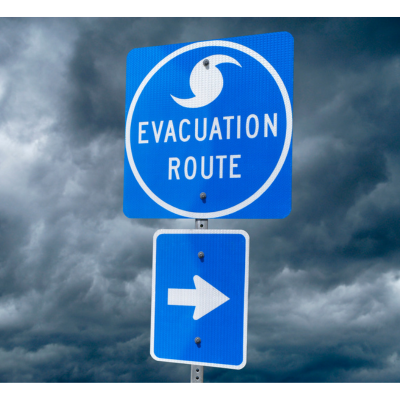
Map out your evacuation route ahead of time, and identify multiple exit routes in case your primary path is blocked. Keep a printed map in your vehicle in case GPS services fail.
Prepare a go-bag with essential items such as clothing, medications, important documents, and some cash.
Consider a waterproof container to store your valuables and documents like passports, house deed, important photographs, and birth certificates safely from flood damage. This one is large enough for a variety of items but is also easily portable.
When considering how to prepare for a hurricane, don't forget about your pets. Make sure to have carriers, leashes, and enough pet food and water for several days. Having a pet-friendly storm shelter or hotel in mind can also save you valuable time.
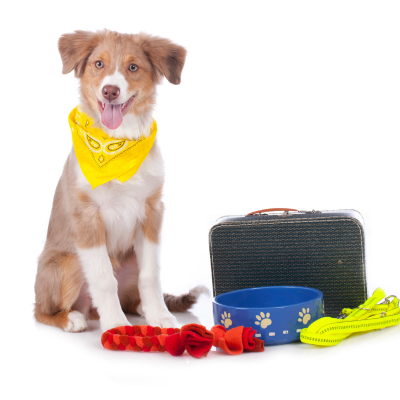
Additionally, plan for any special needs family members may have, and ensure you have the necessary supplies and equipment for them. Knowing where to go and having your vehicle ready can greatly reduce stress and increase your chances of a smooth evacuation.
Communication and Information Access
Maintaining communication and access to information is vital during a hurricane. Start by ensuring your portable phone chargers are fully charged, as landline phone systems and cell service can become spotty or fail entirely.
Here's good news though – Melanie at melanielovestampabay has a great post about how to connect to a satellite to send text messages if your late-model iPhone loses it's traditional service.
A battery-powered or hand-crank radio is indispensable for receiving real-time updates on weather conditions, evacuation orders, and emergency broadcasts.
Here is a best seller on Amazon:
Create a contact list of family, friends, and emergency services, and save it both digitally and on paper in case your phone battery dies or you lose access to your digital files. Text messages often go through more reliably than calls during network congestion, so plan to use text messaging for critical communications.
Social media can also serve as a valuable tool for updates and reaching out for help, but don’t rely solely on it, as internet service can be unreliable. Local authorities and emergency services often use social media to disseminate important information quickly, so follow their accounts ahead of time.
Most states have a website where you can see what roads you can travel after the storm. You can check them out at these links:
For families, establish a communication plan that includes a designated meeting place if you get separated. Make sure everyone knows how to use any emergency communication devices you have, such as two-way radios.
Finally, stay aware of local resources and shelters, and know where to find the most current information. Websites of local news stations, government agencies, National Weather Service, and National Oceanic Atmospheric Administration (NOAA) are excellent sources for up-to-date and accurate information.
A key when talking about how to prepare for a hurricane is staying well-informed and maintaining communication. It can greatly improve your safety and ability to respond effectively during a hurricane. Keep up to date on hurricane conditions and the clean up efforts so you'll know when it's safe to travel.
Final Thoughts on How to Prepare for a Hurricane
Something else to consider is how you'll keep your children calm and distracted during a hurricane and in its aftermath. If your electricity is out for an extended period of time, be sure to have things on hand to keep them entertained such as books, board games, and crafts that don't require electricity.
Check out our posts Crafting Magic: How to Make Clay Mushrooms and How to Make a Pom Pom Wreath with Yarn. These are easy DIYs that are fun for the whole family and require no electricity.
Lastly, this post covers a lot of what you and your family will need to keep safe and comfortable during a hurricane but it's a good idea to do everything you can to prepare your home.
Check out FloridaDisaster.org for tips for homeowners on how to prepare for a hurricane to avoid property damage by installing storm shutters, protecting your home from floodwaters, flood insurance, and more.
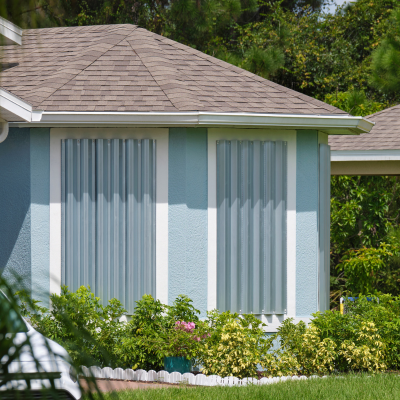
Conclusion
Thorough preparation can make a significant difference in avoiding disaster when facing hurricane season. By stocking up on essential supplies like batteries, battery-powered fans, bottled water, non-perishable food, and portable phone chargers, you can better endure power outages and maintain some level of comfort.
A generator is invaluable but must be used safely, while a comprehensive first aid kit ensures you're ready for any medical needs. Reliable lighting solutions, clean clothing, and an organized plan for transportation and evacuation are equally crucial.
Staying informed through reliable communication channels is vital for your safety. As someone who has lived through Hurricane Michael, I can attest that these preparations are not just helpful—they are necessary. Prioritize your safety by planning ahead and equipping yourself with the essentials to weather the storm.
Subscribers can get your free hurricane preparedness printable in my printable library. Click here to get yours today.
Stay safe out there!

